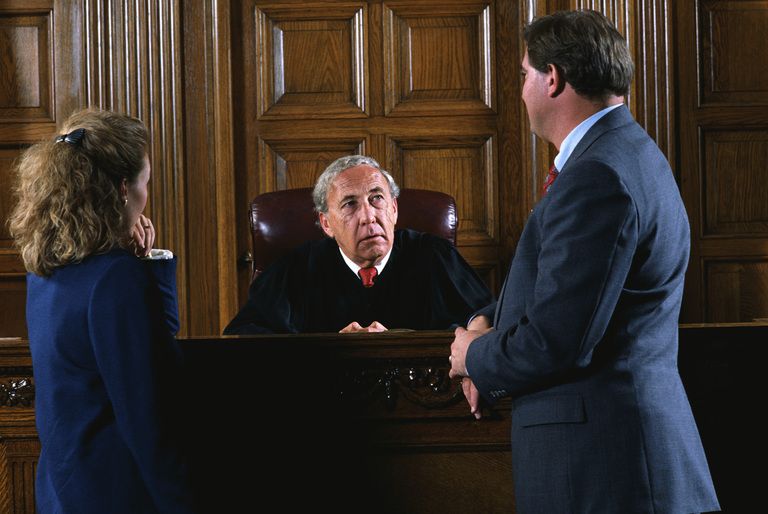 If you have been charged with a criminal offense in the State of Nebraska, you will have a number of important decisions to make over the course of the prosecution of your case. One of the most important decisions will be whether to take your case to trial or accept a guilty plea agreement negotiated between the prosecuting attorney and your criminal defense attorney. Before you can decide if going to trial is the right decision, however, it certainly helps to gain a better understanding of what happens in a criminal trial. For example, how do the attorneys decide who to put on the stand and what questions to ask them? To help with the answers to those questions, an Omaha criminal defense lawyer explains cross-examination.
If you have been charged with a criminal offense in the State of Nebraska, you will have a number of important decisions to make over the course of the prosecution of your case. One of the most important decisions will be whether to take your case to trial or accept a guilty plea agreement negotiated between the prosecuting attorney and your criminal defense attorney. Before you can decide if going to trial is the right decision, however, it certainly helps to gain a better understanding of what happens in a criminal trial. For example, how do the attorneys decide who to put on the stand and what questions to ask them? To help with the answers to those questions, an Omaha criminal defense lawyer explains cross-examination.
The American Criminal Justice System
If you make the decision to take your case to trial, it means that you have decided to allow a judge or jury to decide the issue of guilt. One of the basic principles of the American criminal justice system is that an accused is innocent until proven guilty. The State (via the prosecuting attorney) has the burden of proving a defendant guilty beyond a reasonable doubt at that trial. The “beyond a reasonable doubt” standard of proof is the highest in the entire American justice system, meaning the State’s job is not an easy one. In addition, a defendant also has a number of important rights guaranteed within the first ten Amendments to the U.S. Constitution, collectively known as the Bill of Rights. Those rights are also intended to protect you during a criminal investigation and/or trial. All of these things are designed to prevent an innocent person from being convicted of a crime.
Criminal Trial Basics
In a criminal trial, the State is represented by the prosecuting attorney and the defendant by a criminal defense attorney. Because the State has the burden of proving guilt, the State always presents its case first. In fact, because the State bears the burden of proving guilt, a defendant is not required to put on any defense. Sometimes, in fact, if the State’s case is particularly weak and it appears clear that it has not met its burden of proving the defendant guilty beyond a reasonable doubt, the defense will not present any evidence or testimony. Instead, the defense will rely on the judge or jury to recognize that the State has failed to prove guilt beyond a reasonable doubt.
A criminal trial begins with opening statements from both sides. After that, the State will call its first witness. When the prosecuting attorney is questioning its own witness, that is referred to as “direct examination.” After the State is done asking a witness questions, the defendant’s attorney may also ask questions of the witness. Those questions are part of “cross-examination.” As a general rule, questions asked during cross-examination must relate to matters brought up during direct examination. During cross-examination, the attorney may ask leading questions though. For example, the attorney might start out a question by saying “Mr. Smith, isn’t it true that on the night of …” That question attempts to elicit a specific answer from the witness, something you cannot do on direct examination. Often, the goal during cross-examination is to challenge the credibility or reliability of the witness. The credentials of an expert witness might be questioned. The eyesight or state of intoxication of an eye witness might be brought up. Bias or prejudice might also be pointed out on cross-examination in an attempt to discredit the witness.
During the defendant’s presentation of his/her case, the same process occurs in reverse. The defense attorney asks the direct examination questions of a witness and the prosecuting attorney has the opportunity to cross-examine the witness, again, with the same goal in mind.
Cross-examining a witness, particularly an important one and/or one that testifies often, can be raised to an art form. For a defense attorney, the case is frequently won or lost on cross-examination because this is the attorney’s opportunity to point out to the judge or jury the holes in the State’s case and/or the questionable value of the evidence the State presents.
Contact an Omaha Criminal Defense Lawyer at Petersen Law Office
If you have been charged with a criminal offense in the State of Nebraska, it is in your best interest to consult with an experienced Nebraska criminal defense attorney right away to discuss possible defenses. In Nebraska contact Petersen Criminal Defense Law 24 hours a day at 402-509-8070 to discuss your case.


